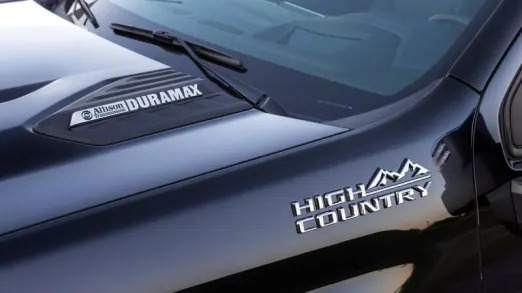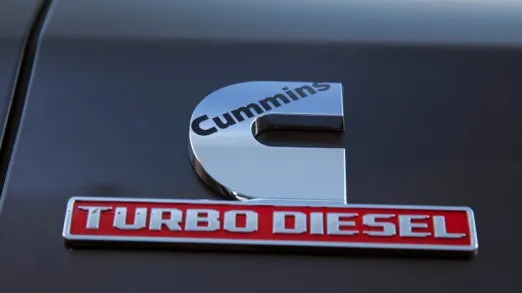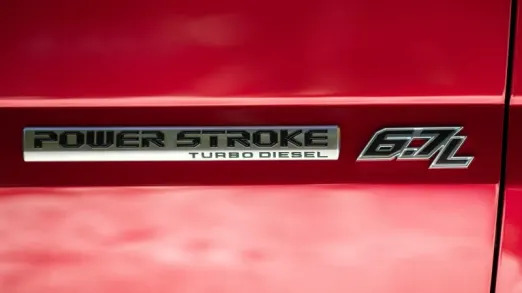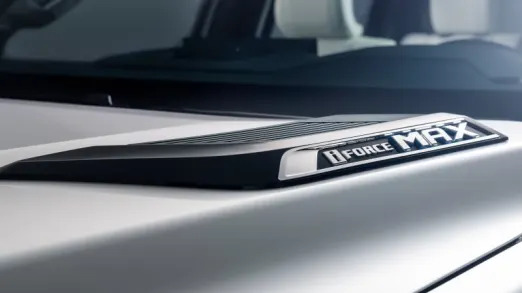It's time for heavy duty hybrid pickup trucks to replace diesel

When full-size pickup trucks were first equipped with diesel engines in the late 1970s, it wasn’t part of an effort to post huge performance numbers. Instead, General Motors’ much-maligned 350-cubic-inch diesel V8 was tuned primarily to sip fuel and spun out a paltry 120 horsepower. Dodge’s Mitsubishi-built diesel six-cylinder was even less powerful with around 100 horses on tap.
The diesel truck landscape did improve relatively quickly, with GM’s 6.2-liter and 6.5-liter joined by Ford’s 6.9-liter and 7.3-liter V8s, all with indirect injection. Power levels — and particularly the crucial torque figure — rose dramatically as turbochargers were added, followed closely by direct injection and ultra-high-pressure fuel pumps.
Still, the initial goal of adding diesels to pickup trucks was for efficiency, and it wasn’t really until the early 2000s that diesel-powered pickups drastically overtook their gasoline-fueled siblings as the torque-rich tow rigs of choice for Americans seemingly obsessed with camping, boating, and even smoke-spewing drag racing with F-Series, Silverado, Sierra and Ram-badged pickups with four doors and seating for the entire family.
And let’s be clear, modern diesels from Ford, General Motors and Ram do indeed make massive amounts of power, and can therefore tow massive amounts of weight. The rest of the trucks have similarly been beefed up, with transmissions, frames, axles, and braking systems (along with a ton of computers to control it all) to go along with all that trailer-towing torque.
There’s a significant problem, though. The diesel is no longer the super-efficient option that it was at its inception into the full-size truck realm. A good diesel engine may inherently be efficient due to several factors that are outside the scope of this conversation, but these days, emissions controls, massive weights and expensive fuel mean that big diesel trucks often aren’t lowering the running cost for their owners. This has in turn led a sizable portion of owners to remove or “delete” their emissions systems and alter their factory engine tuning in an attempt to regain efficiency and hopefully improve reliability. This, naturally, comes at the cost of increasing tailpipe emissions. And the deleting process isn’t just of questionable legality, it can also be rather expensive.
If only there was another way to generate a lot of torque at the wheels. One that’s become increasingly popular over the past couple of decades to the point where they’ve already replaced the diesel passenger car. Oh, right. That’d be the electric motor. The latest Toyota Tundra features a V6 engine that’s quite a bit smaller than its prior V8, but with the addition of an electric motor, the package’s 583 pound-feet of torque puts the old 5.7-liter V8’s 401 lb-ft to shame. Toyota chose to equip the hybridized Tundra with a comparatively small battery pack, and in the real world it doesn’t return super high fuel efficiency numbers. Still, as a proof of concept, a downsized gasoline engine and a powerful electric motor can certainly equal diesel-like torque, with the added benefit of strong reliability and fewer efficiency-robbing emissions systems.
Ram is taking things several steps further with its 2025 Ramcharger. That upcoming truck’s 3.6-liter V6 engine, liquid-cooled 92-kilowatt-hour battery pack and electric motor pump out an estimated 615 lb-ft. Ram is targeting a 14,000-pound towing capacity along with a 4.4-second 0-60 mph sprint.
And now we come to a few questions I think are legitimate, and that I admit I don’t have the answers to. What would happen if Ram took the Pentastar V6 but ditched the 130-kWh generator needed to keep the battery charged without plugging it in? Could they then dramatically downsize the battery? If they did both of those things, how much weight could be cut from the powertrain package? How much combined power could be extracted from a reasonably sized gasoline engine and a matching reasonably sized electric motor?
Here are some numbers worth chewing on. Ram is putting a 92-kWh battery in the Ramcharger. Toyota puts a paltry 1.87-kWh battery in the Tundra with the I-Force Max hybrid system, which is somehow actually larger than the minuscule 1.5-kWh pack in the Ford F-150 hybrid.
A few more rhetorical questions: Is there any technical reason one of these automakers couldn’t bridge the light-duty/heavy-duty truck gap with a strong hybrid/gasoline powertrain that would perform about as well as a modern diesel without all the emissions accouterments that go with it? And would that put an end to the messy and illegal diesel defeat devices without harming the capabilities that truck buyers have come to expect?




What about the price? How much would a theoretical heavy duty hybrid truck cost? Again, I don’t have the answer to that. But I can say that the 6.7-liter Cummins diesel adds $9,795 to the cost of a Ram 2500 over the standard 6.4-liter Hemi V8. Ford offers two versions of its big 6.7-liter diesel V8, one that’s $9,995 over the standard gas engine and another that makes more power and adds $12,495.
Considering all of these data points, coupled with the desire for greater fuel efficiency, lower running costs and improved reliability figures, would American buyers be willing to accept a heavy duty hauler with a hybrid gasoline/electric powertrain? I believe the answer is yes. I know lots of diesel truck owners, and let’s just say none of them are super accepting of a diesel exhaust fluid tank, either. Hit the right numbers, make it look and feel desirable, and slap just about whatever price is necessary to keep it profitable — we live in an age where tens of thousands of buyers are paying $100,000 or more for big luxurious diesel-fueled trucks each and every year, after all — and I think it’s reasonable to believe a well-engineered heavy duty hybrid truck would be a winning combination.





